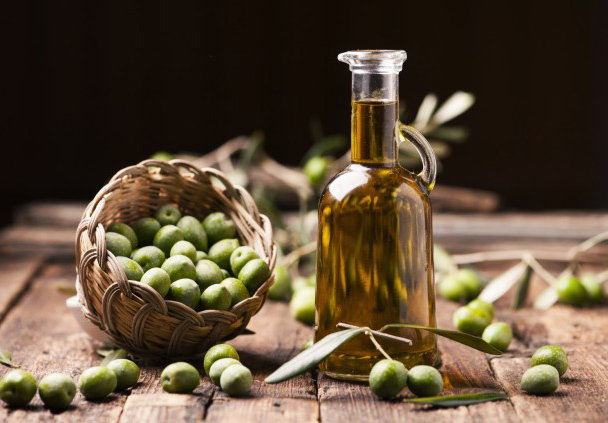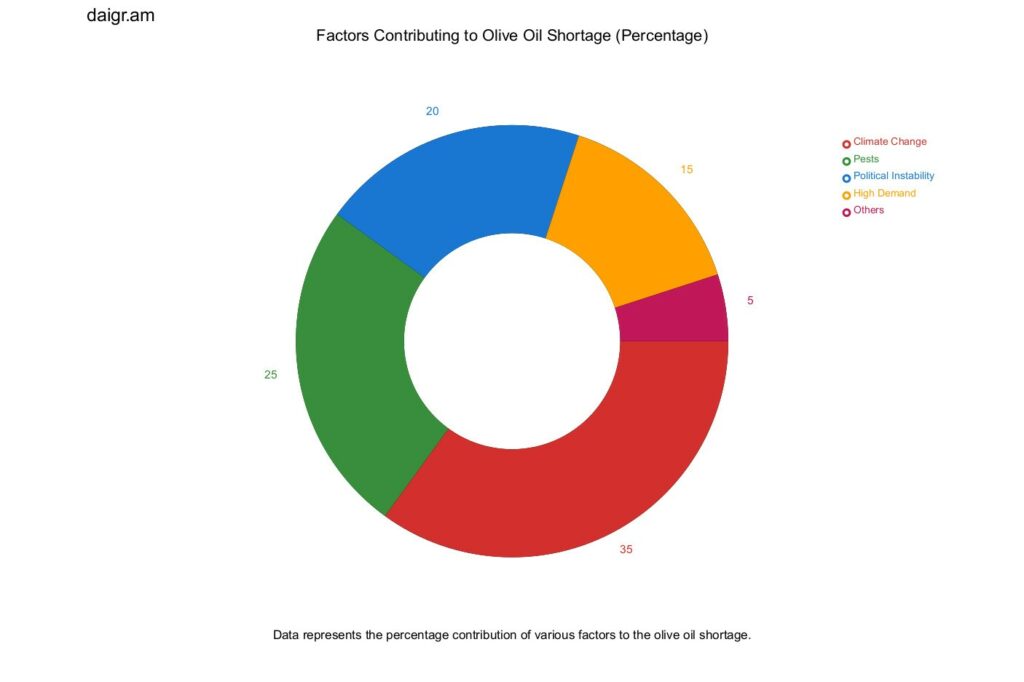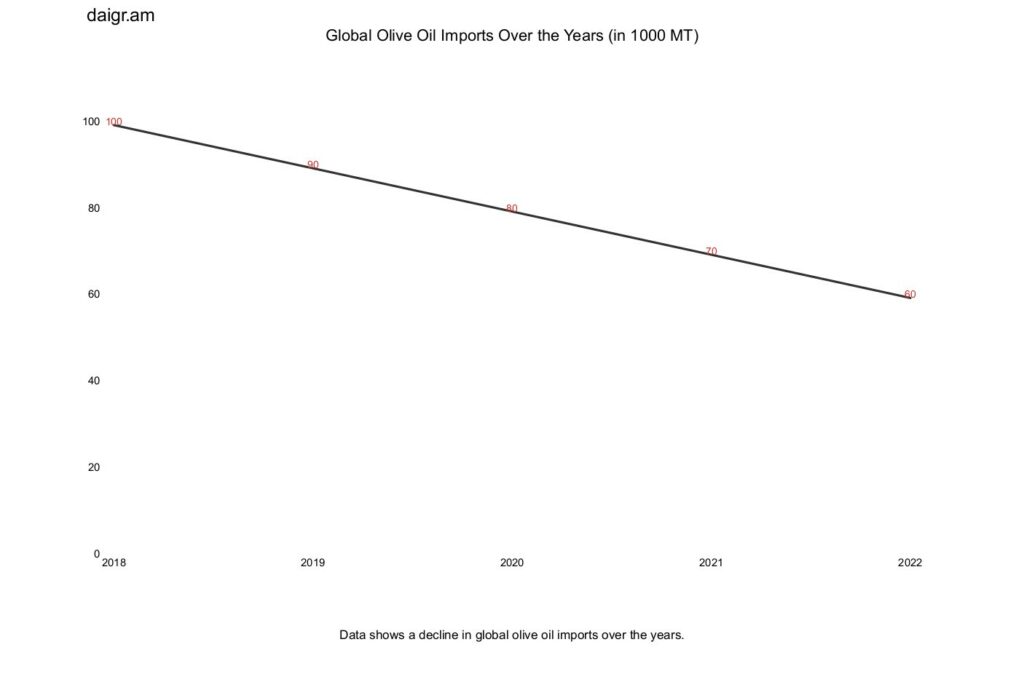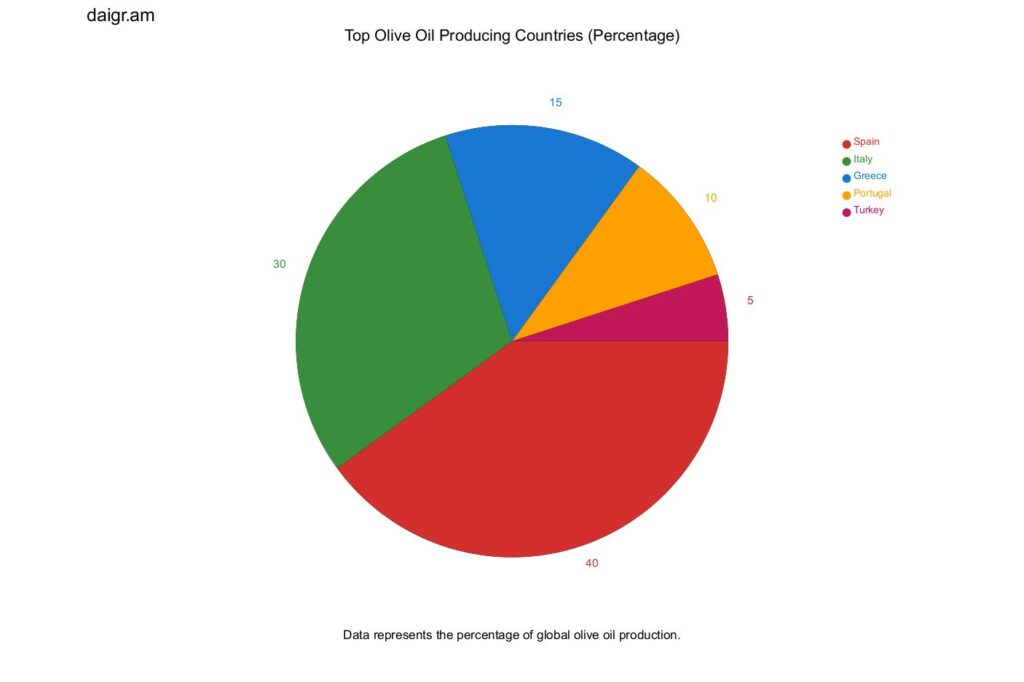
Olive Oil Shortage Looms: A Consequence of Climate Change
The global olive oil industry faces a turbulent 2023 as climate change wreaks havoc on olive crops. Reports suggest a potential 40% drop in this year’s harvest due to a heatwave-induced drought, particularly affecting Spain, a significant player in the global olive oil supply chain. Continued high demand appears that it will out pace supply.
October always brings the first of the olive crops in the Mediterranean, kicking off a usually festive harvest season. This year though, the summer’s heatwave in Europe has had devastating effects for the olive yield, a critical source of the world’s olive oil supply.
The year 2023 is set to be a challenging one for the global olive oil industry, and it’s all due to climate change. Traditionally, October heralds the commencement of olive harvesting in the Mediterranean, a time of festivity and anticipation. However, this year, the scorching European summer has wreaked havoc on the olive yield, a vital source of the world’s olive oil supply.
According to experts and reports from CNN, farmers are bracing for a staggering drop of up to 40% in this year’s harvest. The culprit is a heatwave-induced drought that coincided with a three-year spell of reduced rainfall in Spain – one of the key players in the global olive oil supply chain. This double whammy is poised to send prices skyrocketing, impacting both businesses and hardworking farmers significantly.
In Canada, where the demand for olive oil has surged by 26% in the last decade, consumers, including amateur and professional chefs, will soon find themselves searching for alternatives. Olive oil from various countries contributes to the global supply chain. However, in niche markets like Canada, a disruption in one supply line sends ripples throughout the economy, resulting in price hikes and scarcity on store shelves.
The Silver Lining: Exploring Healthy Alternatives
While olive oil shortages may loom on the horizon, there’s a silver lining for those looking for healthy cooking alternatives. It’s always wise to be conscientious about your oil use in the kitchen. Canadians, known for their loyalty to canola oil, might need to embrace change. As olive oil becomes scarcer, other nutritious alternatives step into the spotlight.
Consider vitamin-packed almond oil and avocado oil, both boasting high smoke points, making them ideal for cooking without the fear of ruining your dish due to burning oil.
The Unique Landscape of Olive Farms
Olive farms in various countries around the Mediterranean might not fit the conventional image held by many North Americans. As The New York Times reveals, a substantial number of farmers are fourth or fifth-generation custodians of the land and trees that have been cherished by their families for over a century. Olives are deeply rooted in the culture and tradition of Mediterranean communities, and supporting their agriculture is pivotal to preserving their way of life.
In other words, despite rising costs and potential shortages, it’s imperative to recognize that olive oil farmers require our support. Their commitment to the land and the heritage of olive cultivation is invaluable.
In conclusion, as we face the impending olive oil shortage triggered by climate change, it’s not just a matter of finding substitutes; it’s about understanding the impact on the global economy, appreciating the versatility of alternative oils, and recognizing the heritage and hard work of olive farmers. While challenges lie ahead, they also present opportunities to diversify and adapt in our culinary choices.
LA Foods can assist in finding you sources for Olive Oil and more through our Source, Stock + Supply Program!



